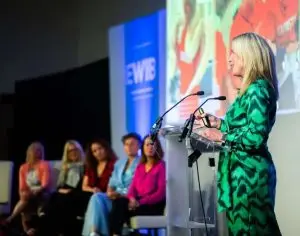If you read all the research available on franchising, you will discover a statistic that says 93% of all franchisees are likely to still be in business after a certain number of years, while 80% of independent start-ups will have gone bust.
This is true. Franchised businesses have a far greater chance of success than new go-it-alone start-ups. Therefore, it always amazes me that politicians fail to publicise this glaring fact. I am also surprised that Governments do not focus more of their attention on the franchise model. Franchising should play a key role in the regeneration of the local and national economy, and perhaps town centres too.
And as I remove my political hat, I would like to use this month’s column to discuss the topic of ‘territories.’ Selecting a territory is one of the most important decisions any franchisee will take.
Do your homework
Territory is important in all types of franchises, whether it be business to business (B2B), or educational, retail or delivery of a service. It can also be an emotive subject, particularly between franchisor and franchisee – and on occasions between two or more franchisees themselves.
A good territory is one with the right type of customer, the right demographics and the right size. When investigating the various options, there are four key aspects which all budding franchisees must consider.
Size
The physical geographical size of a territory is generally irrelevant. Some franchisees think the larger the territory the greater the opportunity. However, I would argue that very large territories can be a hindrance to growth.
For example, franchisees in a B2B environment may be asked to travel long distances from one part of their territory to another. This means plenty of driving, perhaps longer days than normal but with little opportunity to interact with customers.
Similarly, in a retail environment, you want to position your franchise as local and personal which is impossible to do if the territory covers a large geographical area. The critical factor is to ensure you are getting a territory that contains enough of the right type of customer.
This means that whatever your product or service, the territory must have a measurable quantity of prospects to sell to. These could be schools, shops, businesses, towns or the general public. It all depends on the franchise sector you have chosen.
Exclusivity
Some franchisors offer ‘exclusive’ territories while others do not. Some operators may put a ‘managed’ business into a territory already occupied by a franchisee. So rule one is to understand the rights of the agreement before you sign up.
Generally, the term ‘exclusive’ means that the franchisor will not allow another franchisee to start a business in a territory already occupied by a member of their network. However, that does not mean that another franchisee cannot do business in your territory.
Franchisees do not have the right to solicit in another franchisee’s territory. However, customers do have the right to decide where they wish to place an order. A customer in Leicester is free to sign a deal or buy products from a franchisee in Derby.
They may have been recommended by a friend to contact the Derby franchisee, rather than approach the brand’s local representative in Leicester. Some franchisors may offer a ‘family and friends’ policy where a franchisee outside a territory can do business with family members in another territory.
Content
You need to analyse the territory and be satisfied that it is occupied by a suitable quantity of potential customers or clients. If you are involved in B2B, then you should expect a certain number of businesses to be part of this territory.
If you are a home service business, then you will want to ensure that there’s an appropriate level of ‘chimney pots’ in the area, along with the right demographics. If you are in retail, then you need to consider footfall. If it’s a children’s educational franchise, then you will want to have an adequate number of schools and nurseries in your region. Content is so much more important than actual size.
Value
If you are buying a ‘virgin’ territory, then the price will be fixed and easy to compare with other similar franchise opportunities. But if you are looking to purchase an existing territory from a franchisee, this transaction will be no different to buying any other business.
Its value will be based on performance and profitability. Size in a resale scenario has little relevance. A ‘territory’ has no intrinsic value but your exclusive right to operate in it makes it unique to your business.

































